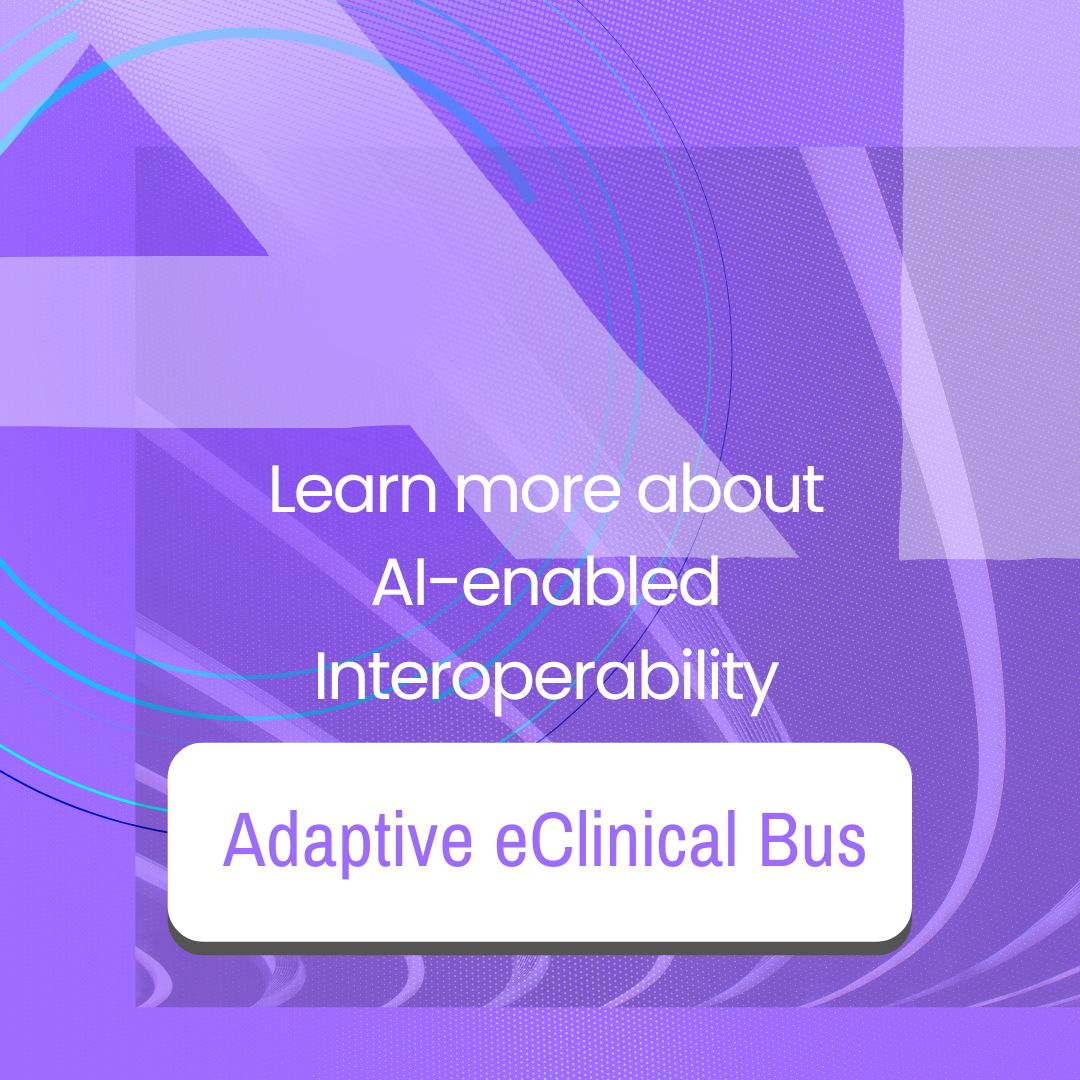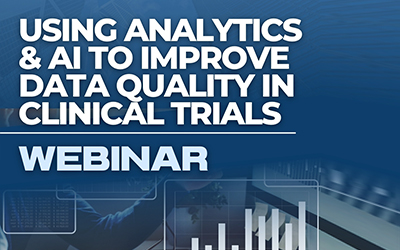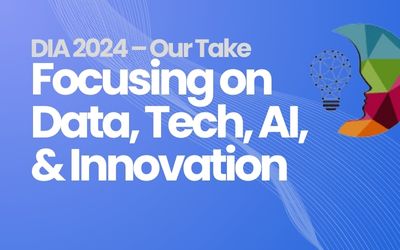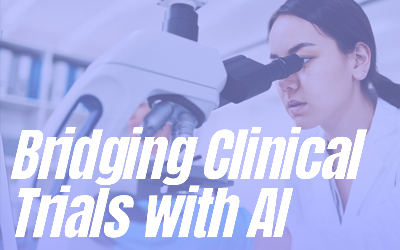Embracing AI: Revolutionizing Clinical Trials
By Eftim Pop-Lazarov, Chief AI Officer
Adaptive Clinical Systems


The life sciences industry is at a crucial point. Traditional healthcare models are giving way to digitized, personalized, and data-focused methodologies. Here, the role of cutting-edge technologies like artificial intelligence (AI) and generative AI is becoming increasingly prominent. In this transformative era, the potential of these technologies to reshape clinical trials is remarkable. (Esteva et al.)
Clinical trials, the cornerstone of pharmaceutical and healthcare – innovation, have long grappled with challenges such as data interoperability, privacy, and operational efficiency. However, the emergence of AI and generative AI heralds an optimistic path forward. Harnessed effectively, these technologies could redefine the entire scope of clinical trials by enhancing data interpretation, bridging data gaps, and driving efficient operations. (HealthIT.gov: Interoperability, 2023)
The emergence of AI stands in stark contrast to the prevailing trend in clinical trials and the broader Life Sciences industry, which often focuses on incremental improvements. An apt illustration of this contrast can be found in a recent newsletter, where the innovative usage of generative AI in EHR systems was set alongside the advantages of transitioning from physical to cloud-based fax technology for enhanced compliance. (Fax, really?) In the same issue, another article compares ChatGPT and other personal assistants with evidence-based answers to public health questions. Both articles highlight a great opportunity for the industry to fundamentally rethink and update current practices, improve communications and, ultimately, patient outcomes. The technology is available, and it’s time for industry to harness it to its fullest potential. (EHR Intelligence, June 20, 2023)


In summary, the integration of AI and generative AI in clinical trials harbors immense potential for the future of healthcare. It offers solutions to long-standing challenges in clinical trials, ranging from data interoperability to privacy concerns. Equipping the industry with the necessary technology and tools to leverage the power of AI while safeguarding data privacy and ensuring operational efficiency is critical as clinical trials seek new automation and self-service tools. The future of clinical trials is upon us – it’s adaptive, automated, private, and driven by AI. (Reddy et al.)
Learn more about how Adaptive Clinical Systems AI-enabled Interoperability for Clinical Trials. This industry-first solution for data integration and interoperability focuses on patent-pending technologies for Automated Data Integration, Data Mapping and FDA-compliant Validation Documentation Generation.
Esteva, A., Robicquet, A., Ramsundar, B., Kuleshov, V., DePristo, M., Chou, K., Cui, C., Corrado, G., Thrun, S., & Dean, J. (2019). A guide to deep learning in healthcare. Nature Medicine. Interoperability. (2023). HealthIT.gov. https://www.healthit.gov/topic/interoperability
Reddy, S., Fox, J., & Purohit, M. P. (2019). Artificial intelligence-enabled healthcare delivery. Journal of the Royal Society of Medicine, 112(1), 22-28.
Overcoming Interoperability Challenges with Digital Fax and FHIR, EHR Intelligence, xtelligent Healthcare Media, June 14, 2023. https://ehrintelligence.com/news/overcoming- interoperability-challenges-with-digital-fax-and- fhir?utm_source=nl&utm_medium=email&utm_campaign=newsletter
ChatGPT Provides Evidence-Based Answers to Public Health Questions, Health IT Analytics, xtelligent Healthcare Media, June 19, 2023. https://healthitanalytics.com/news/chatgpt- provides-evidence-based-answers-to-public-health- questions?utm_source=nl&utm_medium=email&utm_campaign=newsletter
Ask for a demonstration today.
Blog Posts & Resources
Using Analytics and AI to Improve Data Quality in Clinical Trials
Using Analytics and AI to Improve Data Quality in Clinical Trials. This webinar was held on Tuesday, July 9. A summary of the Q&A and Audience...
DIA 2024 – Our Take – Focusing on Data, Tech, AI, and Innovation
DIA 2024-Our TakeFocusing on Data, Tech, AI, and InnovationHosted in San Diego, the DIA Global Annual Meeting celebrated 60 years of innovation. The...
Bridging Clinical Trials with AI: The Effectiveness of Adaptive Tooling and Data Architecture
Bridging Clinical Trials with AIThe Effectiveness of Adaptive Tooling and Data ArchitectureBy Eftim Pop-Lazarov, Chief AI Product Officer, Adaptive...



